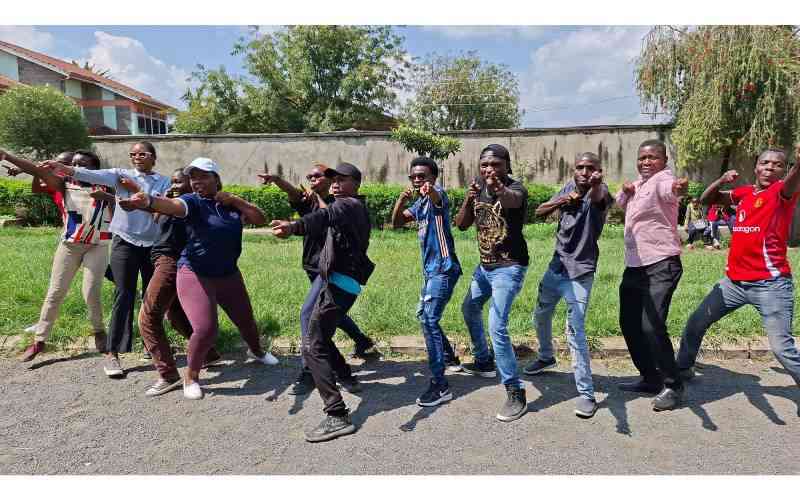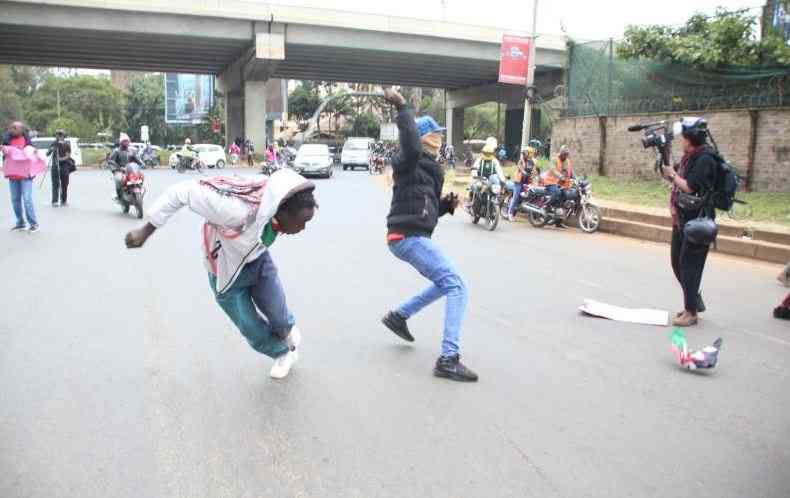
Members of Nakuru journalist association (NJA) also took part in physical exercises, games, team-building activities, and brainstorming exercises to help free their minds from the pressures of their routine jobs.
Members of the Nakuru Journalists Association (NJA) recently participated in wellness and expressive therapy sessions designed to relieve the stress accumulated from their demanding work.
On Saturday, over 30 journalists, including radio and television reporters, broadcasters, writers, photographers, and videographers, shared their experiences during a session that lasted more than four hours. The group also took part in physical exercises, games, team-building activities, and brainstorming exercises to help free their minds from the pressures of their routine jobs.
The session was organised in response to police brutality targeted at journalists in Nakuru, where many had been shot at, assaulted, and tear-gassed by officers. These acts of violence occurred during various events, such as the Generation Z protest in 2024, the Elburgon protest in January 2025, and the coverage of drama festivals in April 2025, during which journalists were tear-gassed live on television.
Kameme TV reporter Catherine Wanjeri described the session as timely, especially as Kenya prepares for the planned Generation Z protests on June 25, a commemoration of lives lost and injuries sustained during last year’s demonstrations.




During the session, Wanjeri recounted how she was shot by police while covering the protests last year, explaining how her life has since changed. “I cannot cover protests in the field anymore. I experience anxiety when I hear loud bangs, and whenever I see police officers, I recall what happened to me,” she said. She added that her body has yet to recover from the trauma, with scars still visible on her leg a year later.
NJA Chairperson Joseph Openda shared his own challenging experiences covering court cases, including witnessing distressing incidents such as a woman removing her clothes in a property dispute and couples expressing intense anger during divorce proceedings. “At times, I do not want to attend court because what you witness affects your life and relationships,” he explained.
Openda stressed that regular sessions like these would help journalists undergo therapy, maintain their wellness, heal, reconnect, recharge, and learn from their experiences.
Ogola Mjomba, Director of Radio Yetu, encouraged journalists and editors to focus on positive storytelling to help shape society. “Kenyans have been conditioned to consume negative news because it sells, but we can change this by highlighting positive stories and showing the public that not everything is bleak,” he said.
Psychologist Millie Rono, one of the facilitators, urged journalists to maintain balance in their lives. “You must check your physical, emotional, environmental, financial, intellectual, professional, spiritual, and social health. Ensure there is balance,” she advised.